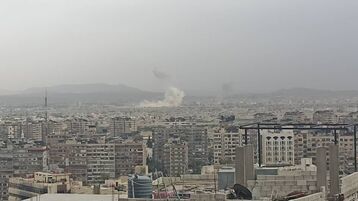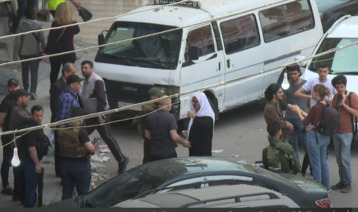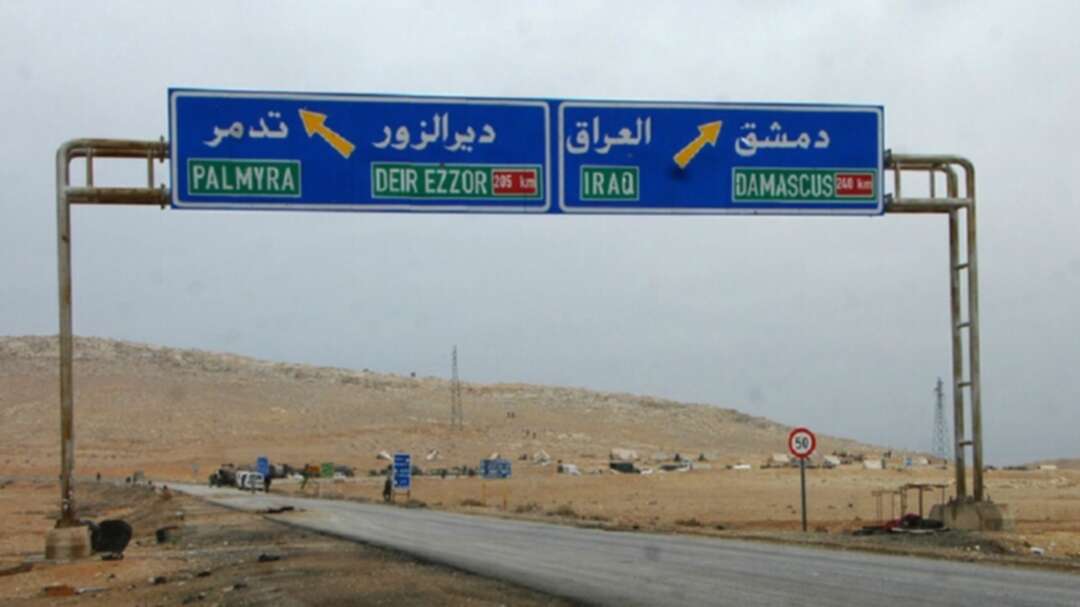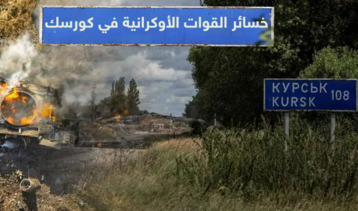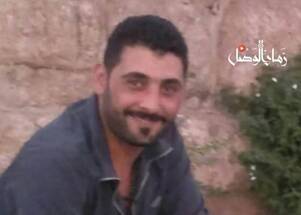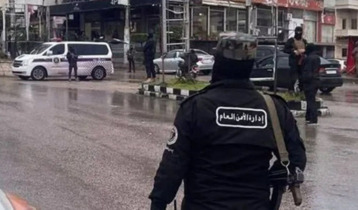-
Iraqi forces kill 10 protesters in Baghdad and Basra
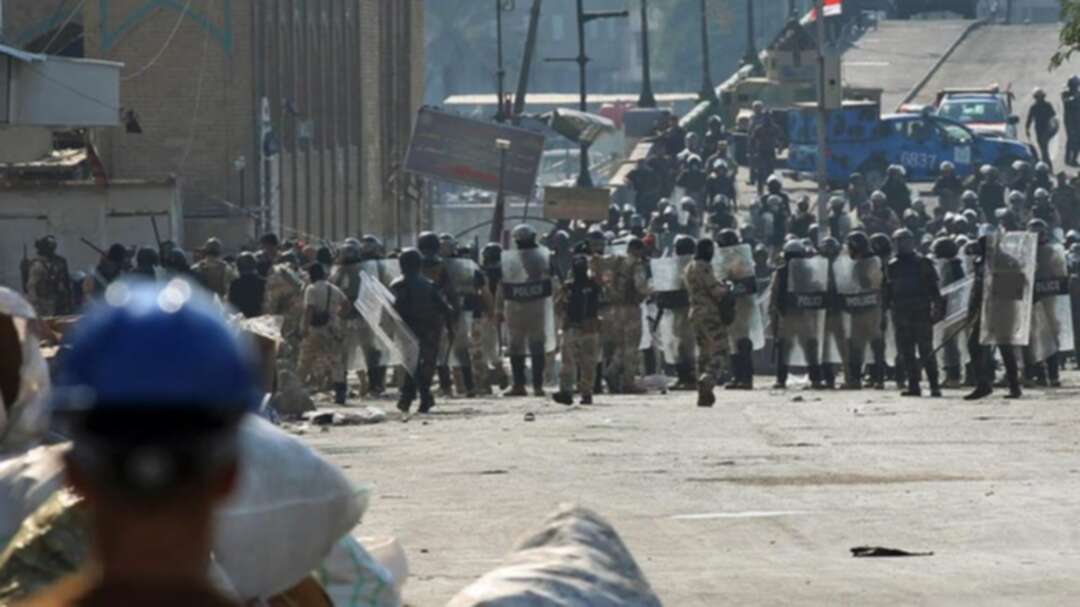
Iraqi security forces shot dead at least six anti-government protesters in Baghdad on Thursday and killed four others as they broke up a sit-in in the southern city of Basra, police and medical sources said.
Scores more were wounded in the clashes as weeks of deadly violence in Iraq over protests against an entrenched political elite showed no signs of abating.
Security forces used live fire against protesters near Shuhada Bridge in central Baghdad. Gunfire was used against demonstrators in Basra, the main source of Iraq's oil wealth, who had staged a days-long sit-in.
Elsewhere in southern Iraq, dozens of protesters burned tires and blocked the entrance to the port of Umm Qasr, preventing lorries from transporting food imports, just hours after operations had resumed, port officials said.
The Iraqi government has failed to find a way out of the biggest and most complicated challenge it has faced in years. The unrest has shattered the relative calm that followed the defeat of ISIS in 2017.
A crackdown by authorities against mostly unarmed protesters has killed more than 260 people since demonstrations began on October 1 over lack of jobs, chronic power and clean water shortages, poor education and healthcare and corruption.
Protesters, mostly unemployed youths, blame a political elite that has ruled Iraq since the toppling of Saddam Hussein in 2003, and demand a complete overhaul of the political system.
The economy is beginning to feel the pinch.
Internet outages imposed by the government to try to stem unrest have hit the private sector, a central bank source said.
The source said private banks in Iraq had recorded losses of some $16 million per day since the internet was first shut down at the beginning of October.
Combined losses by the private banks and mobile phone companies, money transfer services, tourism and airline booking offices had averaged more than $40 million per day, the source said - almost $1.5 billion for Iraq in just over a month.
Umm Qasr briefly resumed operations early on Thursday after most protesters cleared the area. But several dozen activists, relatives of a demonstrator killed during weeks of violence, then returned to block the main gate, port officials said.
Umm Qasr receives most of the grain, vegetable oils and sugar that Iraq depends upon.
Oil and security officials said operations resumed on Thursday at the nearby Nassiriya oil refinery, where protesters had stopped fuel tankers entering or leaving the day before.
Oil production and exports have not been significantly affected by the unrest, oil ministry officials say.
But the halting of fuel tankers that transport fuel from the Nassiriya refinery to regional gas stations caused fuel shortages across the southern Iraqi province of Dhi Qar. The refinery had recently been producing around half its capacity, oil officials said.
The internet returned briefly in most parts of Iraq on Thursday but went out again after 1:00 pm local time (1000 GMT).
The government says it is enacting reforms but has offered nothing that is likely to satisfy most protesters.
Stipends for the poor, more job opportunities for graduates and pledges to punish a handful of corrupt officials have come too late for those demanding an overhaul of state institutions, a flawed electoral process and system of governance that has fueled endemic corruption, many Iraqis say.
source:Reuters
You May Also Like
Popular Posts
Caricature
BENEFIT Sponsors BuildHer...
- April 23, 2025
BENEFIT, the Kingdom’s innovator and leading company in Fintech and electronic financial transactions service, has sponsored the BuildHer CityHack 2025 Hackathon, a two-day event spearheaded by the College of Engineering and Technology at the Royal University for Women (RUW).
Aimed at secondary school students, the event brought together a distinguished group of academic professionals and technology experts to mentor and inspire young participants.
More than 100 high school students from across the Kingdom of Bahrain took part in the hackathon, which featured an intensive programme of training workshops and hands-on sessions. These activities were tailored to enhance participants’ critical thinking, collaborative problem-solving, and team-building capabilities, while also encouraging the development of practical and sustainable solutions to contemporary challenges using modern technological tools.
BENEFIT’s Chief Executive Mr. Abdulwahed AlJanahi, commented: “Our support for this educational hackathon reflects our long-term strategic vision to nurture the talents of emerging national youth and empower the next generation of accomplished female leaders in technology. By fostering creativity and innovation, we aim to contribute meaningfully to Bahrain’s comprehensive development goals and align with the aspirations outlined in the Kingdom’s Vision 2030—an ambition in which BENEFIT plays a central role.”
Professor Riyadh Yousif Hamzah, President of the Royal University for Women, commented: “This initiative reflects our commitment to advancing women in STEM fields. We're cultivating a generation of creative, solution-driven female leaders who will drive national development. Our partnership with BENEFIT exemplifies the powerful synergy between academia and private sector in supporting educational innovation.”
Hanan Abdulla Hasan, Senior Manager, PR & Communication at BENEFIT, said: “We are honoured to collaborate with RUW in supporting this remarkable technology-focused event. It highlights our commitment to social responsibility, and our ongoing efforts to enhance the digital and innovation capabilities of young Bahraini women and foster their ability to harness technological tools in the service of a smarter, more sustainable future.”
For his part, Dr. Humam ElAgha, Acting Dean of the College of Engineering and Technology at the University, said: “BuildHer CityHack 2025 embodies our hands-on approach to education. By tackling real-world problems through creative thinking and sustainable solutions, we're preparing women to thrive in the knowledge economy – a cornerstone of the University's vision.”
opinion
Report
ads
Newsletter
Subscribe to our mailing list to get the new updates!

